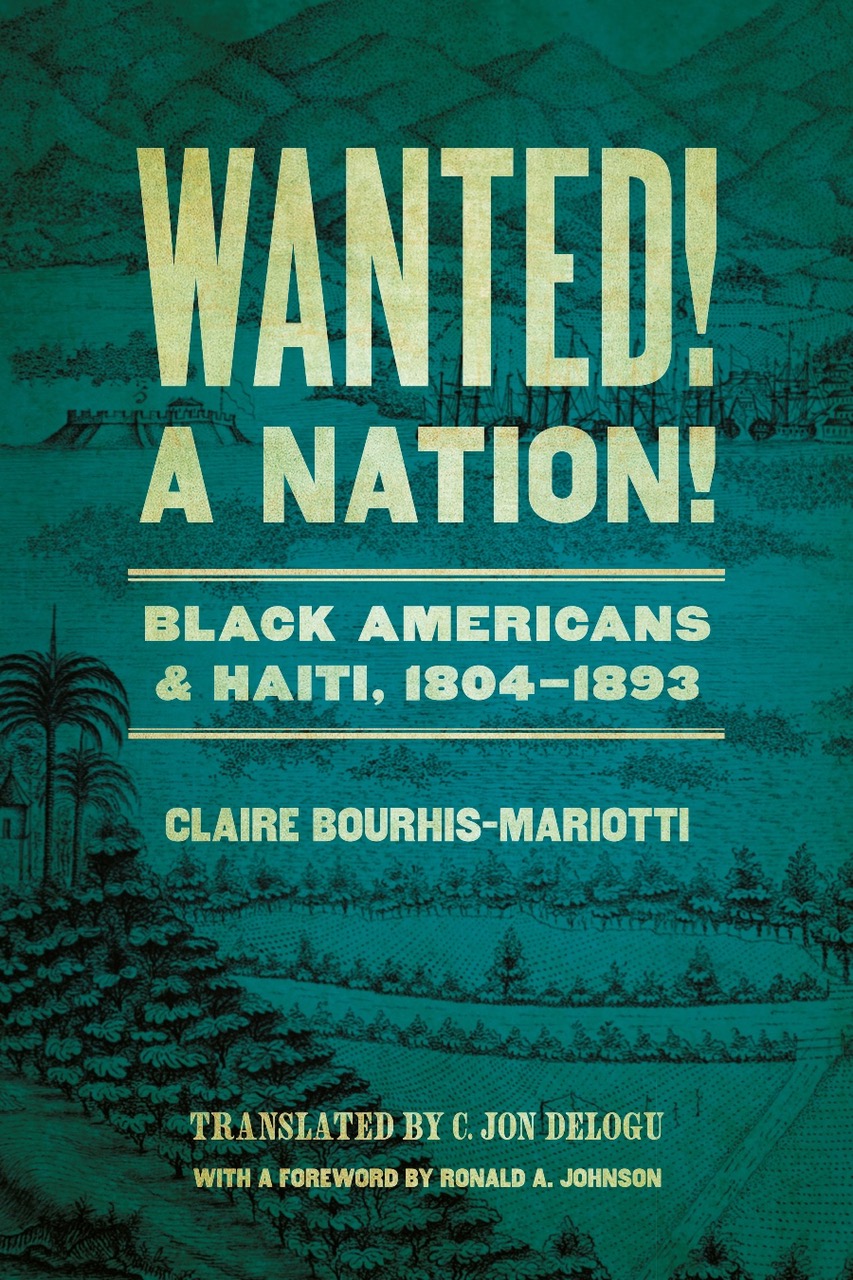Wanted ! A Nation ! Black Americans and Haiti, 1804-1893
Nous avons le plaisir de vous annoncer la parution, chez University of Georgia Press (collection Race in the Atlantic World, 1700-1900), d’une version remaniée et traduite en anglais de la première monographie de notre collègue Claire Bourhis-Mariotti, Université Paris 8 – TransCrit, sous le titre Wanted ! A Nation ! Black Americans and Haiti, 1804-1893.
Description :
Covering the whole of the nineteenth century, Wanted ! A Nation ! reveals how Haiti remained a focus of attention for white as well as Black Americans before, during, and even after the Civil War. Before the Civil War, Claire Bourhis-Mariotti argues, the Black republic was considered by free Black Americans as a place where full citizenship was at hand. Haiti was essentially viewed and concretely experienced as a refuge during moments when free Black Americans lost hope of obtaining rights in the United States. Haiti is also at the heart of this book, as Haitian leaders supported the American emigration to Haiti (in the 1820s and early 1860s), opposed the American geostrategic and diplomatic diktats in the 1870s and 1880s, and finally offered an international platform to Frederick Douglass at the 1893 Columbian World’s Fair, thus helping Black people who faced discrimination at home to fight first against slavery and the slave trade, and then for equal rights.
By spanning the entire nineteenth century, Wanted ! A Nation ! presents a complex panorama of the emergence of African American identity and argues that Haiti should be considered as an essential prism to understand how African Americans forged their identity in the nineteenth century. Drawing on a variety of sources, Wanted ! A Nation ! goes far beyond the usual framework of national American history and contributes to the writing of an Atlantic and global history of the struggle for equal rights.
This is a terrific book that brings new material and interpretations to a burgeoning field of study surrounding the links between the United States and Haiti and the place of Haiti in African American practice and thought. It places anglophone and francophone writing and scholarship into dialogue in an important and innovative way.
—Laurent Dubois, author of Haiti : The Aftershocks of History








